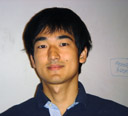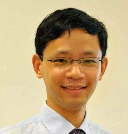Eleven with MIT Ties Make the TR's Prestigious List in 2012
-
-
slice.mit.edu
Filed Under
Recommended

Technology Review recently named its 35 Innovators Under 35, a list that honors some of the most compelling young minds working in their fields who have, as TR says, "the greatest potential to transform the world." And nearly a third of these have connections to MIT.
Winners are chosen from six categories: communications, energy, web, biomedicine, computing, and materials.

To select them, TR collected nominations then consulted 20 judges comprising distinguished university professors and industry leaders, many of whom have been honored on the TR100 or TR35 lists in the past.
MIT Alumni
Ken Endo PhD '12: Adding spring to robotic limbs by doing away with some of the motorsAbraham Flaxman '00: Combining different types of data in new ways in order to track and slow the spread of disease in developing countries

Drew Houston '05: Hiding all the complexities of remote file storage behind a small blue (Drop)box
Shishir Mehrotra '00: Turning Web video phenomenon YouTube into a profitable business by making ads optional
Baile Zhang PhD '09: Crafting a new type of invisibility cloak made from a common material that can work with larger objects

Profs, Post-Docs, and Researchers
Mircea Dincă (assistant professor of chemistry): Using sponges to improve and store alternative fuelsRana el Kaliouby (Media Lab scientist): Teaching devices to tell a frown from a smile
Bryan Laulicht (post-doc at the Institute for Medical Engineering and Science): Finding an adhesive that protects vulnerable skin

Bozhi Tian (former post-doc): Developing artificial tissue that can monitor and improve health down to the level of individual cells
Andreas Velten (former Media Lab post-doc): Spotting tiny problems with help from an ultrafast camera
Zheng Wang (former research scientist at MIT's Research Laboratory of Electronics): Slowing light to help chips cope with optical data







